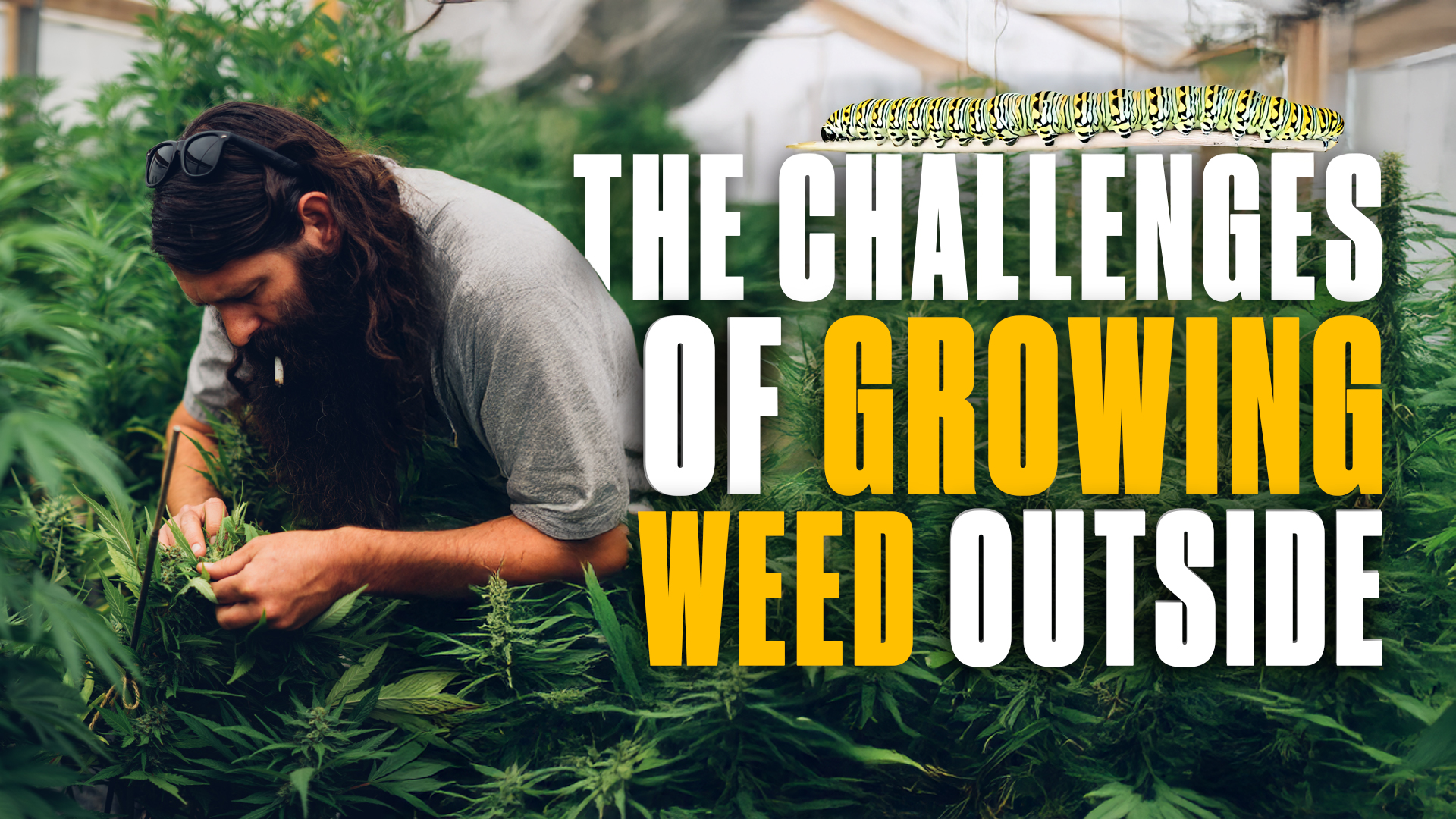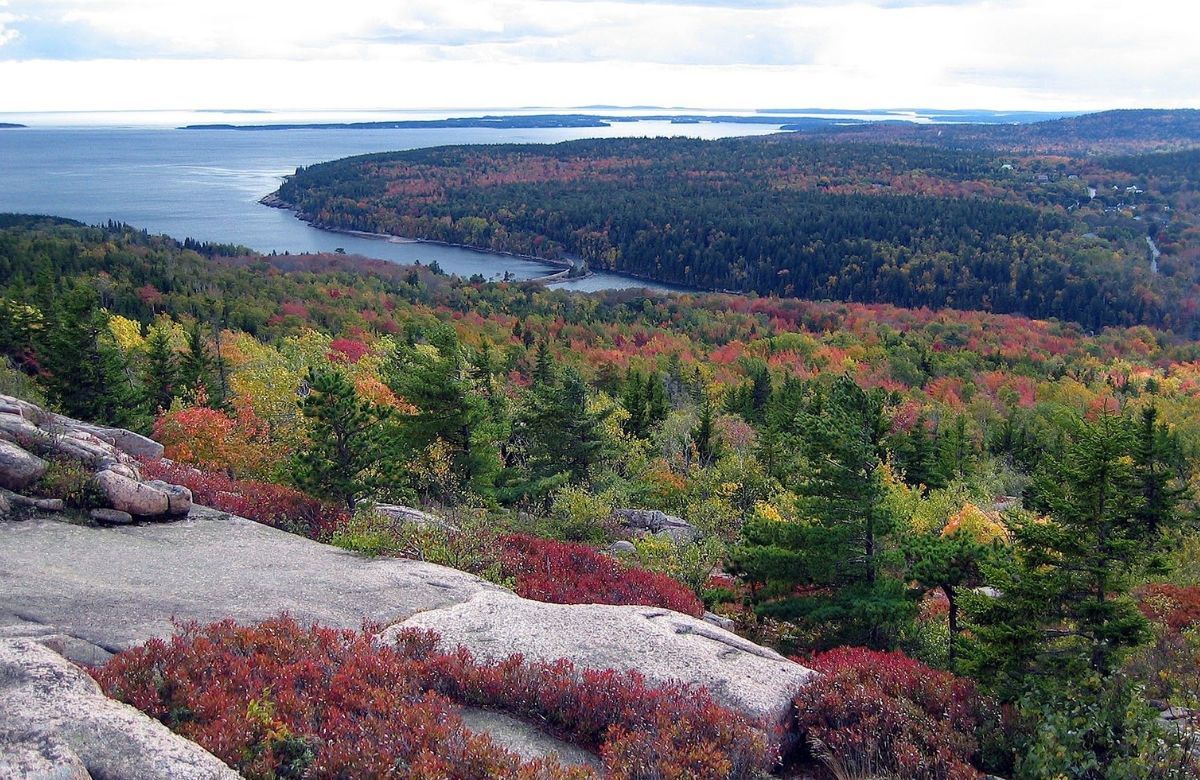Aeroponic Grown Cannabis
Topics
Meet Ryan Thomas & aerīz (Arise Aeroponic Cannabis) 0:01
Why Arise Chose Aeroponics 1:15
Sustainability in Cannabis Cultivation 4:30
Scaling Aeroponics: Arise’s Operations in IL, AZ, & CA 5:50
Building a Family Business & Marketing Cannabis 10:30
Environmental Efforts & Carbon Offsets 14:00
Future of Aeriz and Organic Cannabis Goals 18:20
Transcript
Follow along using the transcript
Ryan: What's up, everybody! My name is Ryan. I'm the marketing director for Arise, and I'm thrilled to be here at MJ BizCon with Kyle. Thank you for having me.
Kyle: All right, everybody, we got another great episode of Grow Weed at Home, and I'm here with Ryan from Arise—Arise Cannabis, Arise Aeroponic Cannabis (aerīz).So basically, Arise is a very unique company, and they manufacture all of their cannabis aeroponically.
Ryan: That's right.
Kyle: That's a very interesting grow method. I've dabbled in it myself a little bit. Tell us the overview of aeroponics—why you guys chose it and what's beneficial about it.
Ryan: Sure. So it's definitely more of an upfront kind of pain, right? Setting up all the systems requires a lot of computerized processes, and everything runs on a synchronized system. That part of it is kind of a lot, but once it's set up and things are working well, it's maybe a little bit easier to manage than soil grows in a way.
Ryan: But yeah, in aeroponics, the roots are suspended in the air, right? That's the "air" component. It's not like hydroponics, where they're suspended in water.
Kyle: Right.
Ryan: So, the roots are suspended in the air and supported with a grow medium. There are different things you can use—in our case, we use these reusable clay pellets that we really like. We also have a pretty sophisticated misting system beneath all of the plants. Every 20 to 30 seconds, whatever the grow schedule is, you'll hear ‘pshhht’, and that’s how the plants get their water. We really like this method for a number of reasons. Like I said, everything is on a system, so at our scale, it’s easier to control. Plus, we can see the roots of our plants. At any moment, our growers can pull up the tables, look at the roots, and be like, "Okay, the plant looks pretty happy," or "Oh, there's a problem here, we need to troubleshoot this."
Kyle: So, have you found that aeroponics provides any benefits over other methods?
Ryan: I mean, I think it's a matter of preference, I suppose, but there are a few things we like about it compared to soil growing. The majority of the world’s great weed is grown in soil, right? So we recognize that, and we have no vendetta against soil or anything.
Kyle: I actually think the majority of the world’s weed is grown hydroponically.
Ryan: Oo, okay, okay.
Kyle: You know, there aren’t acres and acres—hundreds of acres—of cannabis growing like traditional agriculture. I think most of it is hydroponic. So you’re not in the rarity, but aeroponics is rare.
Ryan: Yeah.
Kyle: I was just curious if you’d found any specific—does it improve terpenes? Does it improve potency? Does it shorten yields?
Ryan: Yeah, I see, um, I can't speak too much to that. I know one thing that we really like is the sustainability side of it.
Kyle: Right.
Ryan: We have a closed-loop cycle, right? So, all of the water that isn’t taken up by the roots of the plants as our misters are on gets collected and goes back into our reservoirs. We end up saving a lot of water that way, which is appealing to us as environmentally minded folks.
Kyle: And the media is all reused?
Ryan: Yeah, yeah, for sure. Our clay pellets, for sure. In terms of quality, I think the main thing is being able to see the roots. That helps us ensure that our plants are staying healthy, and I think, in turn, that leads to better flower for sure.
Kyle: So, do you guys build your own systems, or do you buy them?
Ryan: It’s kind of a mix. I mean, certain things arrive sort of prefab, and then there are other things that we like building ourselves. So, kind of a mix.
Kyle: And you're more of a marketing guy, okay. So, what are you focusing on these days?
Ryan: Most of my day is spent working with my very talented team of graphic designers, web developers, photographers, and videographers—just telling the story of our brand and our products. We also work quite a bit on the R&D side. So, when we're studying the market and thinking, "Oh, it could be interesting to roll out a beverage," our team is pretty involved in researching those things, working on the sampling, and things like that.
Ryan: But yeah, the day-to-day involves a lot of packaging design. That’s a big part of our day—figuring out how to best position these new SKUs we’re rolling out and just trying to stay students of the cannabis industry. Be on top of anything our customers might want that we're not currently doing.
Kyle: What states are you currently distributing in?
Ryan: Illinois, Arizona, and California.
Kyle: Ah, California is a big market.
Ryan: It's a big market, for sure.
Kyle: So, you guys aren’t in the dispensary business, you provide to the dispensaries?
Ryan: That’s exactly right. We had one dispensary in Phoenix, Arizona, that we actually sold recently. And then we have two dispensaries in Illinois, in the Rockford area. That’s really it for us on the retail side. Our philosophy as a company has always been more of an "inch wide, mile deep" kind of vibe. We don’t want to overextend ourselves with a store here, a store there, a store in Maryland, a store in Puerto Rico—that seems complicated. We’ve always felt that we have more to do on the production side, whether it’s expanding our grow or rolling out new products. So yeah, our focus is much more on the production side than the retail side.
Kyle: So, being aeroponic, do you try to bring education to the consumer about your growing practices, or are they just unaware of it?
Ryan: It's interesting. This is a question we struggle with too—how interesting is aeroponic cannabis to your average consumer? Do they care about that? How much should we talk about it? What we've kind of settled on is that the Arise brand, which is our flagship brand—it's the name of the company and everything—leans into aeroponic messaging because we're very oriented toward sustainability, minimalism, and a more premium nature of the product. But with certain other brands of ours, we don’t lean into it as much. The cannabis may still be grown aeroponically, but we’re just not highlighting that aspect in our marketing.
Kyle: What is your main focus? I know you said there's a lot of day-to-day stuff, but tell me something exciting that you're hoping to come around on or something new on the horizon.
Ryan: Well, I alluded to beverages earlier—that’s an area we’re pretty interested in right now.
Kyle: Do you get to sample? Are you part of the tasting and testing?
Ryan: Sometimes! Sometimes we’re sampling live, you know, fresh samples and stuff. I make the feedback sheet, put it on the kitchen table, everybody tries everything... and then I’m like, “Nobody wrote anything down,” because they got too stoned! So yeah, the sampling committee is always kind of a work in progress. Like, how can we be professional and collect data—attempt to follow some semblance of the scientific method—but also have fun in the process? But yeah, I’m on the sampling committee. I don’t have as high of a tolerance as some of my peers, but yeah, we have a bunch of drink samples now.
Kyle: Where did you come from before Arise? I know you're pretty young.
Ryan: Yeah, I just hit the big three-oh in June.
Kyle: Wow, you're a young-looking 30, for sure!
Ryan: Hey, thanks!
Kyle: What brought you to this industry? Are you a degreed person, or did you just fall into it?
Ryan: Honestly, kind of both. I do have a college degree from the University of Wisconsin—I studied international business and worked for an investment research company in Chicago. We’re a family business at Arise, and my dad is one of our owners. I’m very lucky in that sense. He had been interested in the cannabis space for a while, always kind of an entrepreneur, never really wanted to have a boss—he’s that type of guy, which I totally respect.
Kyle: I'm sure you're going to inherit that trait.
Ryan: I don’t know. I have a boss right now, and it’s him!
Kyle: We all have to have bosses for a while.
Ryan: That’s right. But yeah, he was just getting things going and needed help—marketing materials, branding—this was back in 2015, 2016, very early medical days in the Illinois program. At that time, everything was in really unimpressive pharmaceutical-looking containers with huge barcode stickers. There was a lack of elegance in presentation.
Kyle: So, you wanted to be somewhere between pharmaceutical and Hello Kitty?
Ryan: Exactly! Yeah, we should hire you—that sounds pretty good. I have an artistic background. I’ve played music all my life, played in bands, worked on poster designs, artwork designs, that kind of thing. Our creative director, Dylan, has been with us since the beginning. He and I used to work on posters for my rock band, and now he oversees our entire design team of 10-plus people.
Ryan: So, I felt like I had something to offer my dad. I told him, “I think I could help create materials to support the brands, help with packaging design, positioning, and branding.” At first, it was very DIY. I’d get off my day job, and so would Dylan, Bryson, and Ian—my other guys—we’d play music for a bit, smoke a bong, throw the Volcano around, work on the website for a while, then play more music. It was super casual. Now, we have an office, reports, and a more structured process—it’s become more professional.
Kyle: So now you’ve got a cannabis brand—very commendable, that’s awesome. You’re working on the artistic side of it and bringing it to as many people as possible. Are there any aspirations beyond the material parts of the company? Any outreach or other initiatives you're passionate about?
Ryan: That’s something we’ve always been interested in. Specifically, with Arise, I’m quite passionate about environmental matters. I’m sure as you’re aware, the environmental impact of commercial cannabis production is huge. So, one thing we’ve done for Arise is fully offset our carbon footprint. We work with a company called Pama—they do really cool stuff and work with companies like Shopify and Microsoft, they work with very huge companies. They create, monitor, and audit reforestation and forest management programs around the world. We worked with them by taking all of our power bills for Arise, calculating our footprint, and looking at things like employee travel and delivery travel. Then, we purchased an amount of carbon credits to fully offset the footprint of that brand.
Kyle: Awesome. That’s cool.
Ryan: Yeah, yeah, for sure.
Kyle: Are you guys completely into indoor growing?
Ryan: Yeah, we have a greenhouse in Illinois, but I don’t know if you consider that indoor or outdoor.
Kyle: A greenhouse is outdoor. You’re open to the elements and can hybridize it.
Ryan: Okay, okay. I guess ours is kind of hybridized. It’s not—
Kyle: If you're using the sun primarily over electricity, then it’s outdoor. If you have a roof over it to protect it from the elements, it’s still outdoor. That’s how I consider it.
Ryan: Definitely. We’re in southern Illinois, so the elements can be a problem—we get a lot of snow and stuff.
Kyle: So, what’s the long-term goal for Arise?
Ryan: I think we just want to continue doing cool stuff, taking care of our team, and competing. That’s an interesting question because I find myself so caught up in the day-to-day grind, solving whatever the problem of the day is. But I think California is our next big project for us. We’ve been active in California since 2018. We acquired UpNorth Distribution, based out of Humboldt. They have a really talented sales and distribution team, and they’re in over 450 shops in the state. They distribute all of Fig Farms’ products, as well as UpNorth products, Space Gems, and a lot of other popular brands in California. But they never had their own production, right?
Ryan: They didn't have their own grow; they were a middle-market. So, we built quite a large facility in Riverbank, California, that pretty much mirrors our Southern Illinois grow. We're going to be cultivating cannabis for the UpNorth brand, as well as our Days Off brand, and hopefully, eventually, the Arise brand there.
Kyle: Tell the viewers—give us a breakdown of the different products that you guys produce.
Ryan: Wow, the list is definitely growing! Like I mentioned, we're hoping to add drinks, but our primary areas of focus are the usual suspects—premium jarred flower, bagged flower, pre-roll multi-packs, infused pre-rolls...We have a product called Pot Rockets, which are one of my favorites.
Kyle: Pot Rockets? What is that?
Ryan: So, we infuse them with oil, then coat the outside with kief—
Kyle: Like the joints?
Ryan: Yup, that’s exactly right, With a food-grade gum to help them burn evenly and stuff and yeah. They look really pretty—a branded pre-roll cone with kief and everything on the outside. Those do really well for us.We have also infused blunts under our 93 Boys brand that are pretty awesome. A bunch of different gummies under our Arise, Days Off, and 93 Boys brands.
Kyle: Do you get to spend much time in the facility, the cultivation facility?
Ryan: Honestly, not as much as I would like.
Kyle: I'm sure all you got to do is ask.
Ryan: Yeah, no, they generally allow me in the building.
Kyle: You haven't—you haven't done anything to have yourself communicated?
Ryan: Sometimes they probably don't want me to, for sure. It's like we send them packaging that, like, doesn't work or something, you know? But no, we—I try to get down there once every few months, but it's kind of a hike, 'cause, like, I'm—I live in the city of Chicago, I'm on the North Side, and our grow is in, um, you know, far Southern Illinois. So, like, our grow is much closer to Kentucky than it is to Chicago.
Kyle: Oh wow.
Ryan: Um, so it's about a five-and-a-half-hour drive.
Kyle: Wow.
Ryan: Uh, yeah. So kind of near Carbondale, Paducah, KY, Cape Girardeau, Missouri.
Kyle: So after you get done designing all the best containers and you have the best advertising and everybody knows about your brand, what is it you see yourself doing?
Ryan: Man, in terms of the next kind of phase of my life and career?
Kyle: Or like at night, or with Arise, or—I’m just, you know—everybody’s got, uh, you know, uh, you know, aspirations.
Ryan: Ah, yes, yes, yes, yes. I would like to continue, like, working on the sustainability side of our brand. Like, there's always areas for improvement there, like choosing, you know, compostable packaging or, you know—I mean, there's so many different things we're interested in there. So that's, like, an area I'd like to do more in, like, beyond the carbon offsets that we already do. I would like to, uh, have the government treat us more like a normal business, and that would allow us to do a lot more, uh, kind of cool advertising and outreach I think that we're, like, not totally able to do right now.
Kyle: We're almost there.
Ryan: Yeah.
Kyle: All of this normalization, all these people around here, you know, it's—it's becoming really hard for any large government organization to say this isn’t just—
Ryan: Yeah.
Kyle: Commerce.
Ryan: Yeah, and they definitely like the tax revenue that we generate for them.
Kyle: So, yeah.
Ryan: Yeah.
Kyle: Well, I’m glad to see Arise out here growing in a—in a novel way. I love aeroponics. I never really got the hang of it myself, I’m a dirt guy.
Ryan: Yeah.
Kyle: But, um, I love technology. Um, are there any other—is there any other technological parts of the—aspects of the business that—that I haven’t touched on that you can—that you can mention?
Ryan: Well, I mean, one of the big reasons we're out here is automation. Just with the—we have over 200,000 square feet of—of active, you know, cultivation and production.
Kyle: Wow.
Ryan: In Illinois, that's like, uh—that's half of this building.
Kyle: Yeah.
Ryan: It's—it's—and it's grown over time. Like, the original grow, um, was, I think, 28,000 square feet.
Kyle: Wow.
Ryan: And then we just kind of tacked on, you know, building two, building three, greenhouse. And it's one of the—the nice things about being in Southern Illinois is we sit on a pretty large plot of land, so we've been able to expand in a way that some of our peers in Illinois haven’t. But yeah, automation. You know, we have 380 employees at our Illinois grow alone.
Kyle: I'll bet.
Ryan: Yeah, for sure, for sure.
Kyle: Do you have one of those panels, like, with all the green and red flashing lights that controls all your electronics and stuff?
Ryan: Big time. Big time. Yeah, supporting our, like, aeroponic systems and things like that.
Kyle: When something goes wrong, it—’Woo! Woo! Woo!’’
Ryan: It does, for sure. And then it's like, "Ah, I gotta come in on a Saturday. All right, fine." But, uh—
Kyle: Let me ask you this. Does the fact that you are wholly, substantially automated—you know, growing has always been, you know, the old farmer’s adage: "A farmer’s work is never done."
Ryan: Yeah.
Kyle: And like me, I got to go home tonight 'cause I got four gardens I got to take care of. I can't stay in Vegas for three days. Does the automation offer you any advantages beyond, you know—I mean, not having to hand-water? I mean, like, does it—does it really—does it lower the amount of man-hours you have? Does it mean you don’t have to work seven days a week? Things like that?
Ryan: Yeah, I mean, definitely. Unlike the, um, you know, the plants, the watering is probably the biggest one, right? 'Cause, uh, you know, the—the misting systems do that.
Kyle: Figured out a machine for harvesting yet?
Ryan: Uh, I don't—I don't know that we have. I—I don't know if anybody has.
Kyle: Right, for sure.
Ryan: For sure, yeah. And, like, we—we're not interested—it's funny, 'cause, like, I think, you know, sometimes folks get nervous when they hear, like, "automation" or whatever. And, like, we've never—like, we—we've never, like, let people go or something 'cause we've bought some new machine, right? Like—and that's not the type of automation that we're interested in. It's more like supplementing, you know, our kind of the awesome people that work for us, right?
Kyle: Provides a consistency.
Ryan: Sure. For sure. Yeah. It's more the packaging side is—is kind of what we're—that—that's kind of our—most of our bottlenecks right now are, like, you know, we've got to, like, put the strain sticker on the tube, right? And that's done by hand. And then we're, like, heat-sealing, you know, our—our tamper seal with a—with a heat gun and stuff by hand. So there's just—there's a lot of touch points that, uh, you know, we're interested in, like, automating a little more, just so that we can, like, increase the amount we're producing. 'Cause in Illinois especially, like, we're not able to meet the demand on—on, like, quite a few SKUs that we make, which is, like, a good problem to have.
Kyle: But, um, is—yeah. So, uh, besides Arise, are there any other sub-brands or umbrella companies that you work with as well?
Ryan: For sure. Yeah, we have—so we're, like, um—we—we have our other kind of in-house brands, uh, 93 Boys, Days Off, UpNorth, like I mentioned. Um, we produce for Fig Farms in Illinois, we grow their, uh, exclusive genetics. We produce for Cookies in Illinois, um, produce, like, their whole portfolio of products, and we're Stiiizy’s exclusive partner, uh, in Illinois as well.
Kyle: You are busy.
Ryan: I know.
Kyle: Wow.
Ryan: Yeah.
Kyle: It's really nice to be working with a family brand, though, I'm sure.
Ryan: Yeah, it—it really helps things. 'Cause, like, I think with the amount of, like, products that we produce, if it was all going under one brand, I think it would maybe get a little bit, like, old for folks. And it—yeah, just—it’s opened the door for us to, like, you know, like, there’s things that Stiiizy can do that we can't do on our own, right? They’ve built, you know, obviously a huge brand. Likewise with Cookies. Um, likewise with 93 Boys. So, yeah.
Kyle: Well, you’re an interesting character, and I just want to know—actually, professionally, what—what aspirations do you have for yourself professionally? You think you're going to stay in this industry for a long time?
Ryan: Some weeks, I feel kind of burnt out by it.
Kyle: Oh.
Ryan: Between you and me.
Kyle: Oh. Smoke the D without having to sell it?
Ryan: Yeah, yeah. It’s like, uh, you know, the churn and burn of, like, you know, it’s just—we—we’re, like, a large-scale, like, consumer packaged goods business at this point, right? So that—that comes with a lot of, uh—I feel the burden of that.
Kyle: It’s like, do you have an idea, or is it just lead—you think it’s just going to lead somewhere?
Ryan: I’m more kind of the latter. I try not to plan too much. I feel like that gets in the way of things.
Kyle: The more plans you make, the more changes you have to make.
Ryan: Exactly. But yeah, no, I’m really happy where I’m at, and I’m very blessed to be a part of, like, a family business and to have, like, an amazing team. And the—the grows do an amazing job at, like, making awesome cannabis, right? So, like, that makes my job so easy.
Kyle: The growers. It’s easy to appreciate the growers.
Ryan: That’s where it all starts, right? So, it’s like—it makes my job so easy. So, yeah, I’m—I’m happy.
Kyle: Have you ever grown—just curious—for yourself?
Ryan: No. We have—we have, like, a—a plant in the office that we kind of maintain. And some of the—some of the folks I work with who have a better green thumb than me have—have definitely, like, you know, homegrown. But I never have myself.
Kyle: That’s cool. Yeah, well, it’s been really interesting meeting you and
Ryan: Such a pleasure, Kyle.
Kyle: And I hope that Arise does really great in the future. Thanks for doing my show.
Ryan: Thank you so much for having me. I appreciate you, man.
Ryan: Thank you, man.
Kyle: It was nice to meet you. Another great episode of Grow Weed at Home from MJ BizCon!
Ryan: Woo!





